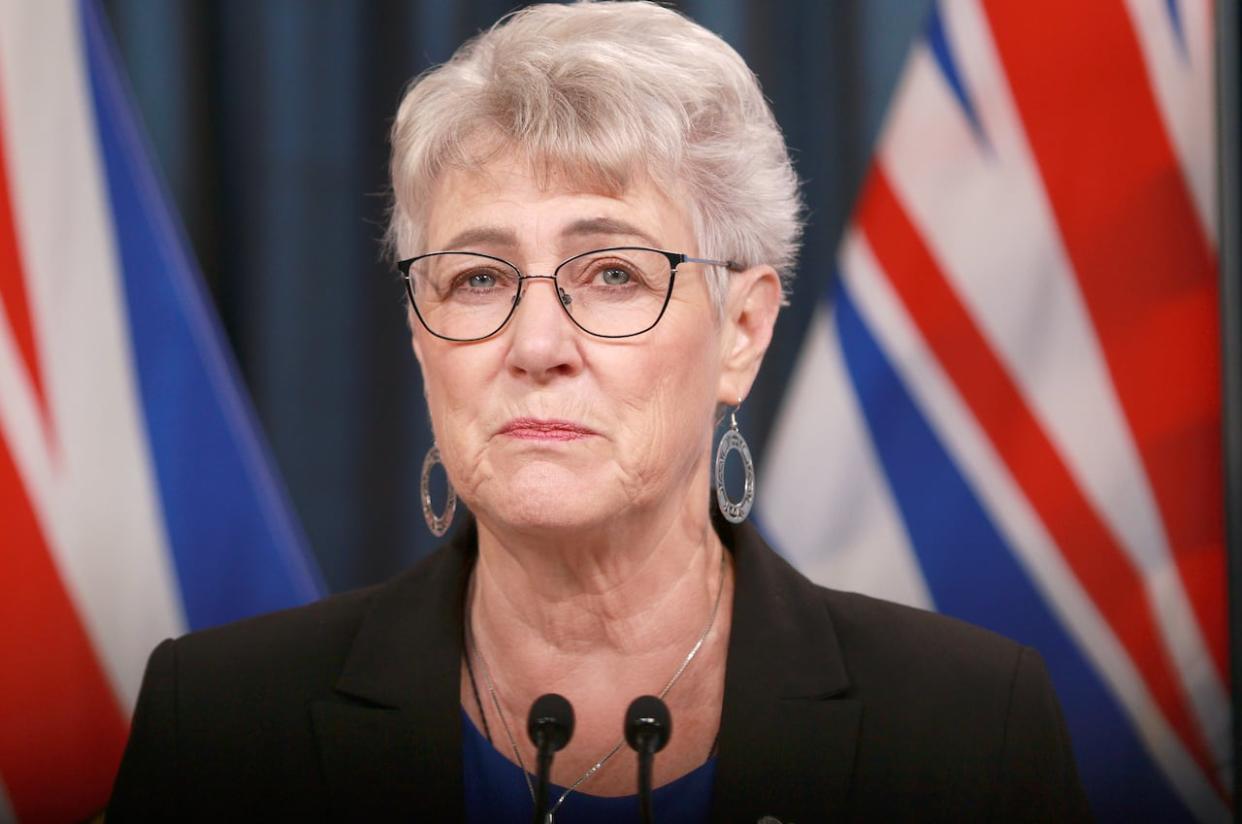B.C. Finance Minister Katrine Conroy won't seek re-election

Katrine Conroy, B.C.'s minister of finance, will not be running in the next provincial election.
On Friday, she shared the news from Castlegar, B.C., a community in her riding of Kootenay West, about 150 kilometres southeast of Kelowna.
Conroy was first elected as MLA for West Kootenay-Boundary in 2005. She became the minister of children and family development in 2017, took over the Ministry of Forests in 2020 and in 2022, Conroy was appointed minister of finance.
Conroy, 66, said she wants to spend time with her family.
There's long been a Conroy on B.C. ballots — her husband Ed Conroy first ran for a position as a school trustee in 1986, Conroy said Friday. He went on to become NDP MLA for Rossland-Trail in 1991.
She thanked her family for their support over her many years in politics.
"Thank you, thank you, thank you," Conroy said, her voice shaking as she made the emotional announcement.
Columbia River Treaty
An important project that may not be complete by the time Conroy leaves office is the modernization of the 62-year-old Columbia River Treaty, which obligates B.C. to direct water from the Arrow Lakes Reservoir across the border at the behest of the United States.
The treaty was forged after catastrophic flooding of the Columbia River in 1948 destroyed the city of Vanport, Ore., near Portland, and led to the creation of three dams in B.C. and a fourth in Montana in the Columbia's drainage basin, serving both flood control and hydropower generation.
But as the frequency of extreme weather events — such as the months-long drought currently affecting B.C. — increases, that treaty must be updated.
The treaty is set to expire in September, and Conroy said she hopes to have an agreement soon, but can't guarantee it.
Retirement begins after election
Conroy said her official retirement won't begin until a replacement is elected.
"It's an incredible job, it's a real honour," she said. "But at the same time, it's time to let someone else take on the position and do the work."
She said the most difficult part of ending her career in politics will be leaving behind those she's served and worked with over the years.
"It's been my honour to serve not only the people in the region, but in the entire province."


